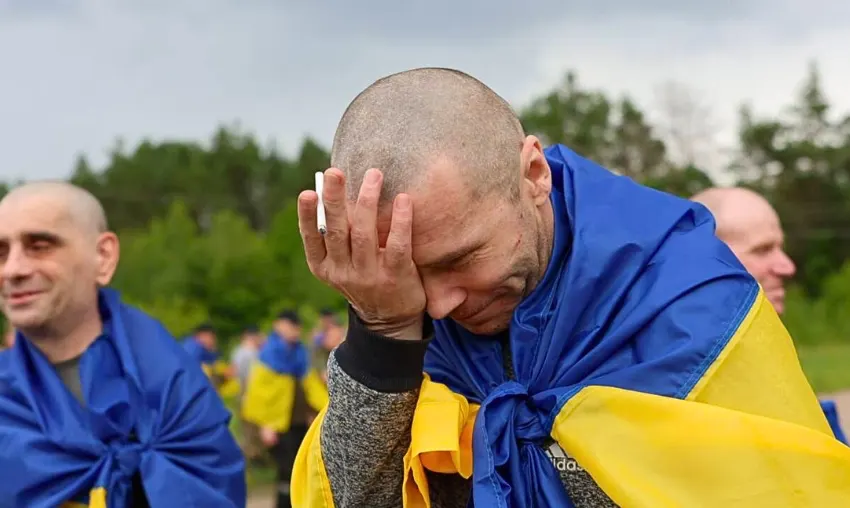Kyiv – As the war in Ukraine continues with unabated ferocity, a contradictory picture is emerging these days. On the one hand, attacks on cities such as Odesa and Kharkiv are intensifying, while on the other hand, diplomatic signals are increasing, at least hinting at an opening for negotiations. On June 19 and 20, Ukraine and Russia once again exchanged prisoners of war – now the sixth swap within just a few days. This was made possible by the Istanbul Agreement, concluded in early June under international mediation. In Geneva, Brussels and Kyiv, this development is seen as a quiet sign that even in the face of war, a trace of willingness to talk still remains.
At the same time, President Volodymyr Zelensky has made an important personnel decision: Hennadii Shapovalov was appointed the new commander of Ukraine's ground forces – a move seen as a response to staffing shortages but also as a signal to NATO. Coordination with Western partners, Zelensky emphasized, must become “more efficient and future-proof.” Meanwhile, verbal threats from Moscow continue to escalate. At the St. Petersburg Economic Forum, Vladimir Putin declared that “the whole of Ukraine theoretically belongs to us.” The Sumy region near the border is increasingly coming into Russia's sights – allegedly for the creation of “buffer zones.”
On the battlefield, the old pattern of new violence continues. On the night of June 20, Russia launched a large-scale drone offensive on the port city of Odesa. At least one person was killed, more than a dozen injured. Schools, a gas pipeline and parts of the railway infrastructure were also hit. Kharkiv also reported further attacks. Ukrainian air defenses deployed 86 drones, shooting down 34 and electronically disrupting another 36. Nevertheless, the vulnerability of civilian infrastructure remains high – not only in front-line areas. In response to an earlier missile strike on an apartment building in Kyiv, which has now claimed 28 lives, President Zelensky lamented the inaction of Western partners and called for increased pressure on Moscow.
While European Commission President Ursula von der Leyen declared the motto “peace through strength” and called for tougher sanctions against Russia, concerns are growing in the background about a new level of escalation. Although Trump insists that direct US intervention has not been decided, a strike against Iran's partner Russia remains on the table – indirectly via the crisis in the Middle East. For now, Ukraine remains the battlefield where not only weapons speak but where hope is being nurtured – for dialogue, exchange, and an end to the dying. That time has not yet come. But perhaps, in these days of June, a first crack has appeared in the steel of irreconcilability.
